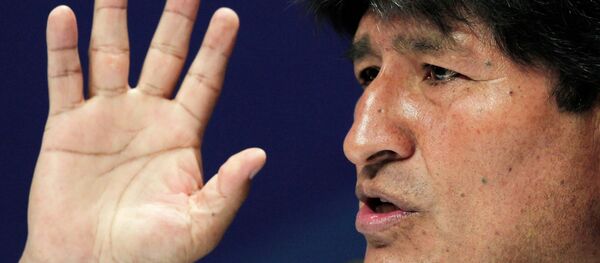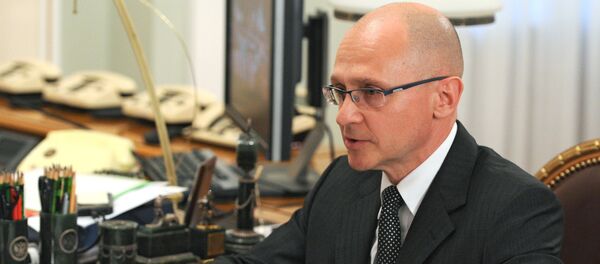Speaking to Bolivia's Cadena A television channel on Sunday, Morales suggested that the Bolivian opposition's attacks on the Chinese engineering firm were "part of a geopolitical war."
"The Bolivian right [opposition] will attack all Chinese companies on instructions of the American empire. The American empire does not want to see the presence of China and Russia [in Bolvia]," Morales noted.
Elected in 2006, Morales nationalized the country's largest gas pipeline company, telecommunications and several oil companies, steps which worked to reduce the influence of US firms. Chinese and Russian companies have taken advantage of opportunities to help develop the country independently of American political and economic influence. This, analysts say, is why Chinese companies, and the president himself, are now coming under attack by opposition forces aligned with Washington.
Asked to comment on the Bolivian president's remarks, Mikhail Beliat, Latin America expert and researcher at the Russian State University for the Humanities, told Sputnik Mundo that Morales has every reason to be concerned.
"What the president is describing is a very real situation. Indeed, the Americans are seriously resisting the entry of Chinese companies to Latin America – especially those in the industrial, high-tech, capital-intensive sectors," the analyst noted.
"But the idea that the US is envious over Chinese companies' entry into Bolivia, and of the growth of Chinese influence in the Western hemisphere in general, particularly in Latin America, is spot on."
In this vein, it's possible that the recent scandal around CAMC Engineering is just a part of Washington's struggle to halt the spread of Chinese influence, using the local opposition forces to regain its own authority in the country.
Last month, media reports emerged that the Chinese engineering firm had received contracts worth tens of millions of dollars from the Bolivian government because Morales' former girlfriend, Gabriela Zapata, had served as the company's director of operations in the country.
At the same time, the president denied any involvement in the scandal, and said that he had not communicated with his ex-girlfriend for almost ten years. Zapata was arrested last month and charged with money laundering and illegal influence peddling. Morales, for his part, instructed authorities to conduct a thorough investigation, and said that he did not intend to cover up for anyone.
Meanwhile, Carlos Valverde, the opposition journalist who leveled the accusations against the president, has himself been accused of having connections to drug traffickers, and of being a "secret agent of the US Embassy" in Sucre. In the early 1990s, Valverde was the head of Bolivian intelligence during the presidency of Jaime Paz Zamora.
Alexander Kharlamenko, the director of the Moscow-based Research Institute of Latin America, told Sputnik Mundo that these kinds of smear campaigns are often used by the US in Latin America to discredit 'undesirable' governments and their international partners.
"In fact, CAMC did not really receive any preferences, and any violations were subjected to the corresponding penalties. Even before the recent referendum, Evo Morales and Vice President Alvaro Garcia Linera had said that all violations by the company were subject to legal sanction."
"The lady in question [Ms. Zapata], meanwhile, hasn't worked for the company for a long time, but her brothers had met with opposition leaders and US diplomats. They decided, apparently, to earn some political and possibly financial capital," the analyst added.
"To a large extent," Kharlamenko suggested, "this scandal was created from scratch, just like the scandal which was inflated around the ex-president of Brazil, and the vice-president of Uruguay. It is a method of discrediting and removing unwanted political leaders regularly used by Washington in Latin America."








